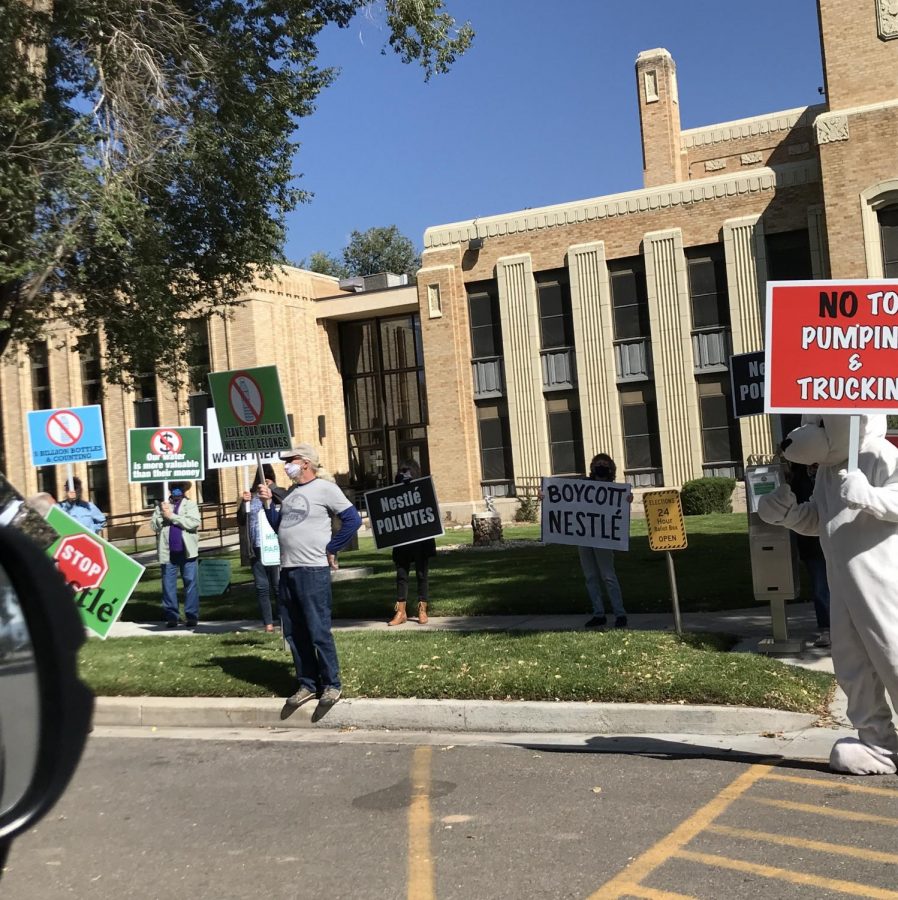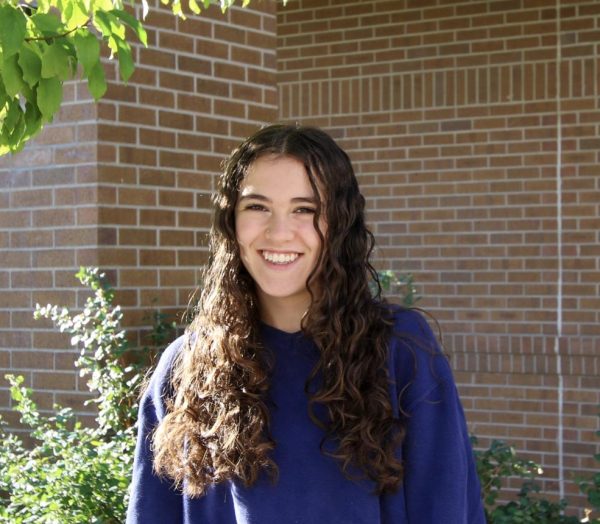Nestle’s Permit Renewal in Chaffee County
October 30, 2020
In 2009 the water company Nestle was granted a permit to pump water from Ruby Mountain Springs and Bighorn Springs in Chaffee County. This year, they are applying to renew that permit, but many local residents oppose their presence.
Each year, Nestle pumps 60 million gallons of water from the local springs, and sends into Denver and other big cities to be bottled and sold. According to Gary Thomson, a water resources engineer hired by Chaffee to assess Nestle’s wells, the pumping has not affected water availability in the surrounding areas. Of Ruby Mountain Spring’s annual flow of approximately 3000 acre feet per year, Nestle only extracts about 112 acre feet of water per year. This has had no effect on the wetlands near it or water levels in the Arkansas. They also replace all the water that they take with water from Twin Lakes reservoir, and water diverted from the Colorado River basin. After testing the water, it has been confirmed that Nestle pumping has also had no effect on the water quality. In short, Nestle extracting water from Ruby Mountain has led to no clear impact on the Arkansas.
In exchange for being able to use Chaffee County water, Nestle had to meet several expectations. First, they donated $500,000 to Chaffee schools, and other sums of money to separate parts of BV and Salida. Next, they have to employ Chaffee residents in 50% of trucking jobs. Finally, they replace all the water they drain from water from the Twin Lakes Reservoir.
“The school uses the money for books, field trips, and computers,” Salida Schools’ superintendent David Blackburn said.
In exchange for water rights, Nestle has given the Salida and BV school districts $250,000 each. Salida School District invested this money back in 2009 to save and create more money off of it and is continuing to take from the investments. The Salida School District does not rely on this money, but it does help the district. For example, the district uses Nestle’s grant to pay for any extra things, such as projects and field trips, that a teacher wants to do. The money is mostly used for science and math-related purposes.
“Yeah, I think that Nestle should stay because they are putting the water to good use,” Blackburn said.
Chaffee uses the water from Ruby and Bighorn Springs mainly for the fish hatchery and farming. Irrigation currently amounts to about a thousand acre feet of water per year that is taken from ground sources and clear creek.
“For a democracy to function, you have to have the people’s voices heard,” Judy Wagner, an environmentalist and member of the 360 Central Colorado organization said.
When Nestle first applied to take Chaffee County water in 2009 many members of the community publicly voiced their opposition. Today over 700 people have signed the petition on Unbottle and Protect Chaffee County Water LLC which outlines its concern about Nestle’s effect on climate change, its failure to meet its promise employing local residents in 50% of its trucking jobs, and the plastic waste it creates. Creating over 1 million tons of plastic waste per year, Nestle is one of the top creators of plastic waste. Despite their pledge to become more environmentally friendly, most plastic products/packaging from Nestle still ends up in landfills.
At the end of the day, Nestle being here has some downsides but also some pluses. It is up to the community to decide what they want, and if the positives to Nestle’s presence outweigh the negatives.



zachary comeaux • Nov 7, 2020 at 5:17 PM
Good, balanced article. I look forward to seeing more from this author as she continues her education, further develops her writing style and tightening up on the flow of ideas. Good research and balanced interviews.